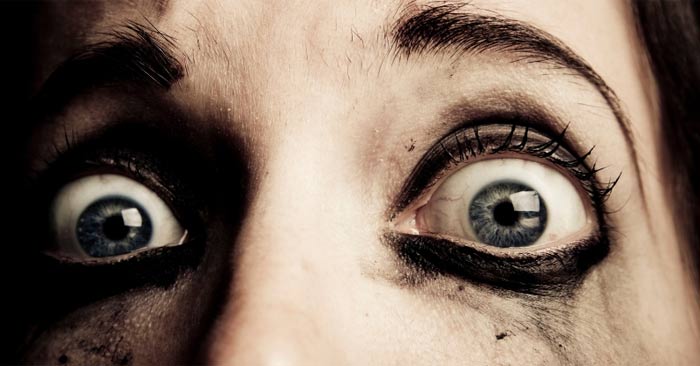Nightmares may triple the risk of death before age 75
Waking up from a nightmare can leave your heart racing, but the effects can extend far beyond a sleepless night. Adults who have weekly nightmares are nearly three times more likely to die before age 75 than those who rarely have nightmares.

This alarming conclusion comes from researchers who combined data from four large long-term studies in the United States, following more than 4,000 people between the ages of 26 and 74.
At baseline, participants reported how often nightmares disrupted their sleep. Over the next 18 years, the team of researchers tracked how many participants died prematurely — a total of 227.
Even after taking into account common risk factors such as age, sex, mental health, smoking and weight, those who had weekly nightmares were still found to be nearly three times more likely to die early – roughly the same risk as heavy smokers.
The team also examined 'epigenetic clocks' – chemical markers on DNA that act as biological mileage counters. Those who were plagued by frequent nightmares were biologically older than their birth certificates, across all three clocks used (DunedinPACE, GrimAge and PhenoAge).
The Science Behind the Silent Scream
Accelerated aging accounts for about 39% of the link between nightmares and early death, implying that whatever promotes bad dreams also spurs the body's cells toward their destination.
How can a scream you never utter leave a mark on your body's genes? Nightmares occur during so-called rapid eye movement sleep, when the brain is highly active but the muscles are paralyzed.

The sudden surge of adrenaline, cortisol, and other fight-or-flight chemicals can be as powerful as anything that happens while awake. If that alarm goes off at night, the stress response may remain partially activated throughout the day.
Chronic stress takes a toll on the body. It causes inflammation, raises blood pressure, and speeds up the aging process by wearing down the protective ends of chromosomes.
Additionally, being woken up by nightmares disrupts deep sleep, a crucial time when the body repairs itself and eliminates waste at the cellular level. These two effects combined—persistent stress and poor sleep—may be the main reason why the body appears to age more quickly.
The idea that unpleasant dreams signal poor health is not entirely new. Previous studies have shown that adults who are plagued by weekly nightmares are more likely to develop dementia and Parkinson's disease.

There is growing evidence that the brain regions involved in dreaming are also affected by brain disease, so frequent nightmares may be an early warning sign of a neurological problem. About 5% of adults report having at least one nightmare a week, and another 12.5% have nightmares monthly.
New findings elevate nightmares from a haunting obsession to a potential public health target. Cognitive behavioral therapy for insomnia, imagery rehearsal therapy—where people rewrite the ending of recurring nightmares while awake—and simple steps like keeping the bedroom cool, dark, and screen-free have all been shown to reduce the frequency of nightmares.
Before drawing conclusions, there are a few important things to note. The study used people's own reports of their dreams, which can make it difficult to distinguish between regular nightmares and actual nightmares. Additionally, most of the people in the study were white Americans, so the findings may not apply to everyone.
And biological age is only measured once, so we can't yet say whether treating nightmares slows down the biological clock.
You should read it
- ★ Repel the dangerous nightmares coming from the network
- ★ 4 effects of alcohol on the brain that many people do not know
- ★ Shocking experiment about damage to the lungs and throat when you smoke a pack of cigarettes
- ★ 3G nightmares are no more, because there are 4G of Mobiphone
- ★ A terrible nightmare for more than 40 years in the 'dead swamp' area in America